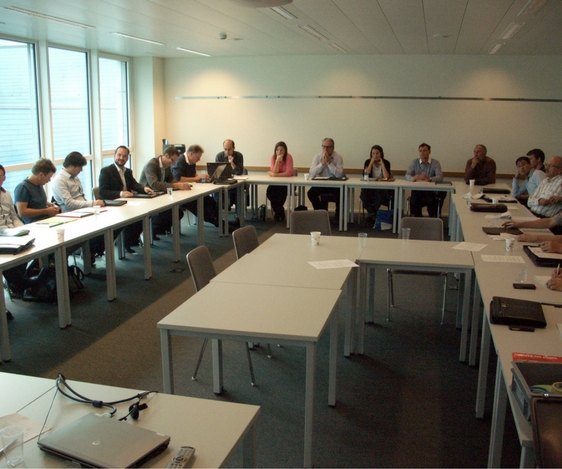Leading by example

A CODE OF FAIR TRADE RELATIONS IN THE SUPPLY CHAIN IN SWITZERLAND
MAKING ORGANIC VALUE CHAIN FAIRER
WHAT:
Bio Suisse has introduced a fairness strategy to enhance trade relations between organic market partners in supply chains within Switzerland. The fairness strategy includes a code of conduct, round table discussions on fairness issues between market partners and a fairness survey to evaluate the current level of fairness in trade relations. If necessary, an elected ombudsman mediates any conflicts.WHERE:
SwitzerlandWHO & HOW:
With the fairness project, initiated in 2010, Bio Suisse is supporting respectful trade and the satisfaction of the trading partners along the whole value chain. Organic farmers, processors of organic food and traders exchange in meetings about their concerns regarding fairness and trade. The basic requirements regarding the fair relationships are included in the Bio Suisse standard.With this project, Bio Suisse is a pioneer of a fairness approach that is not based on inspection and certification, but on a comprehensive long-term dialog and care of good relationship among the partners along the whole value chain. This differs from the classical fair-trade approach that defines minimum prices and premium.
The code of conduct was developed based on several discussion events regarding fairness principles for the Swiss value chain. The participants came from farming, processing and retail, as well from consumer protection sectors. The code of conduct lays down the fairness guidelines for the Swiss market. For international trade, a slightly different code of conduct was developed.
As part of the fairness strategy, the stakeholder round table discussions have been taking place since 2011 in the milk and cereal markets. In discussion rounds, it was suggested to show good practice examples in which fair trade relationships become visible. Similar discussion rounds are also established in the fruit, vegetable and egg markets, and an interest created in the meat market. Those round tables have become an appreciated instrument with positive feedback from the stakeholders.
Ombudsman: Starting from April 2014, it is possible for every farmer to ask for support and recommendations from the especially assigned, neutral ombudsman for fair trade relations. Market participants can also file a formal complaint. The ombudsman researches the cases from all perspectives, and can make a recommendation or hold a mediation. He doesn’t have decision power, but creates transparency and publicity. The recommendations contribute that the principles of the code of conduct are made visible with concrete examples. In future, the ombudsman could treat international cases as well.
Fairness survey: The results of the first fairness survey (in cooperation with the University of Kassel, Germany) show that majority of farmers (64%) and traders (65%) with the bud label are generally satisfied with their trade relations. However, one out of five farmers and one out of four processors/traders are not satisfied with the trade relations. The survey also showed that the code of conduct represents very well the expectations of the market actors of what they feel is fair. The survey is repeated every 3-4 years.
MORE INFO
Bio Suisse - Fair Trade Relations
Do you have an initiative that makes food & farming systems across Europe fair, environmentally conscious, healthy & caring?
Click here to submit your own initiative!